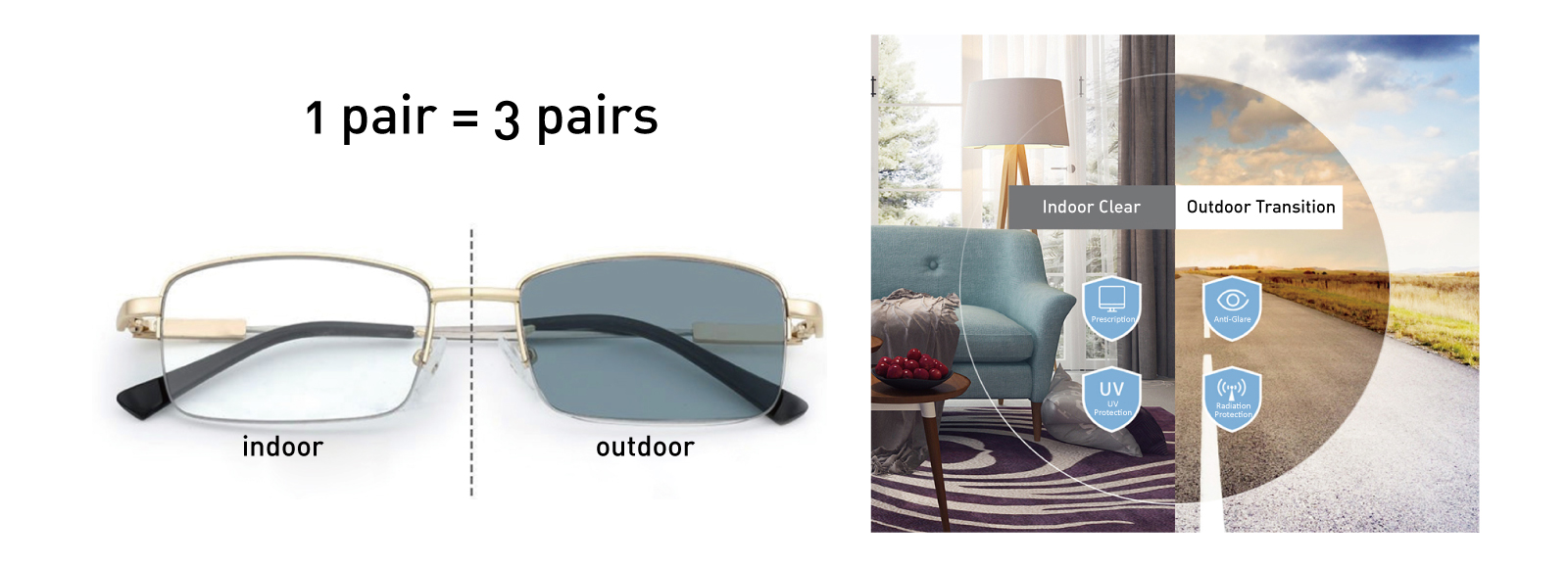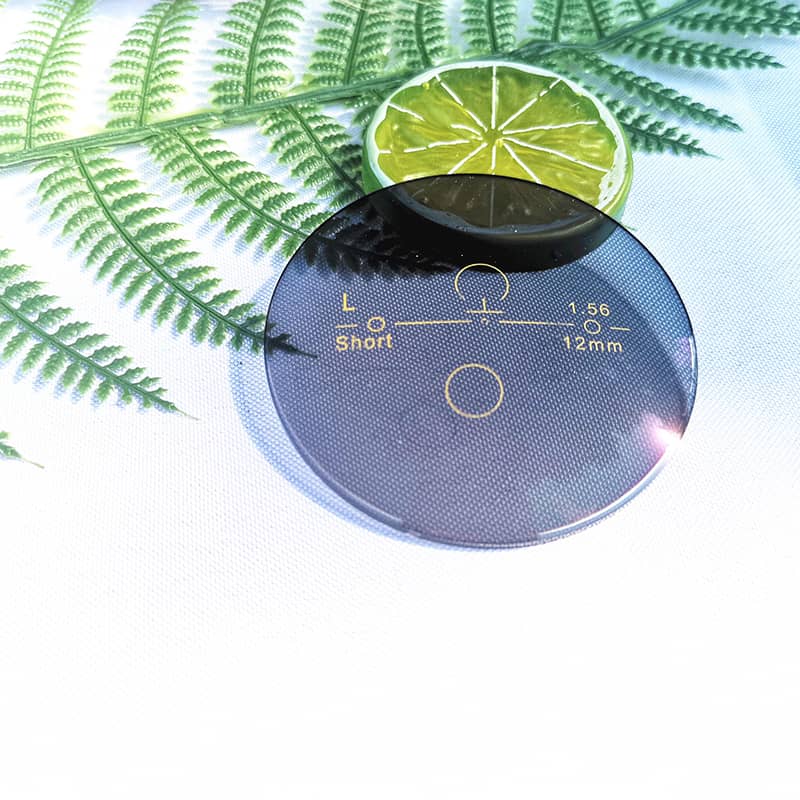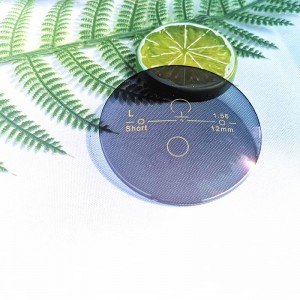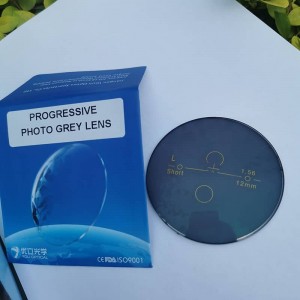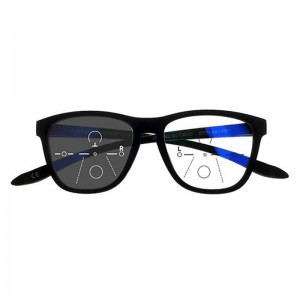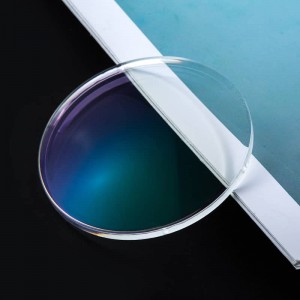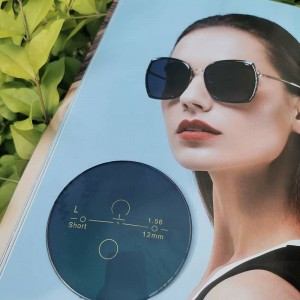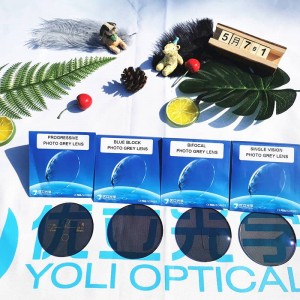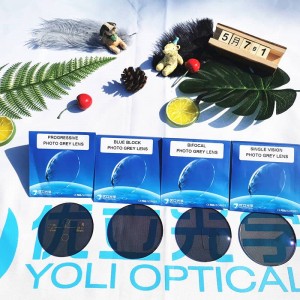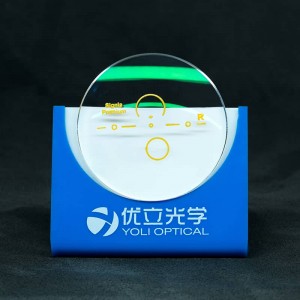
1.59 PC Photochromic Progressive
Why Polycarbonate Lenses?
Thinner and lighter than plastic, polycarbonate (impact-resistant) lenses are shatter-proof and provide 100% UV protection, making them the optimal choice for kids and active adults. They're also ideal for strong prescriptions since they do not add thickness when correcting vision, minimizing any distortion.
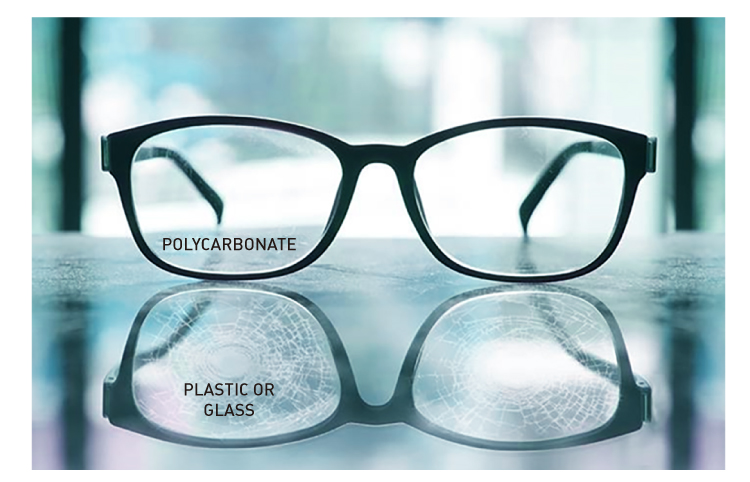
Photochromic Bifocal Lenses Vs Photochromic Progressive Lenses
While bifocal lenses are dual-vision lenses that correct distant and near vision, Objects at arm’s length will still appear blurry. Progressive lenses on the other hand, feature three invisible zones of vision- near, far and intermediate.
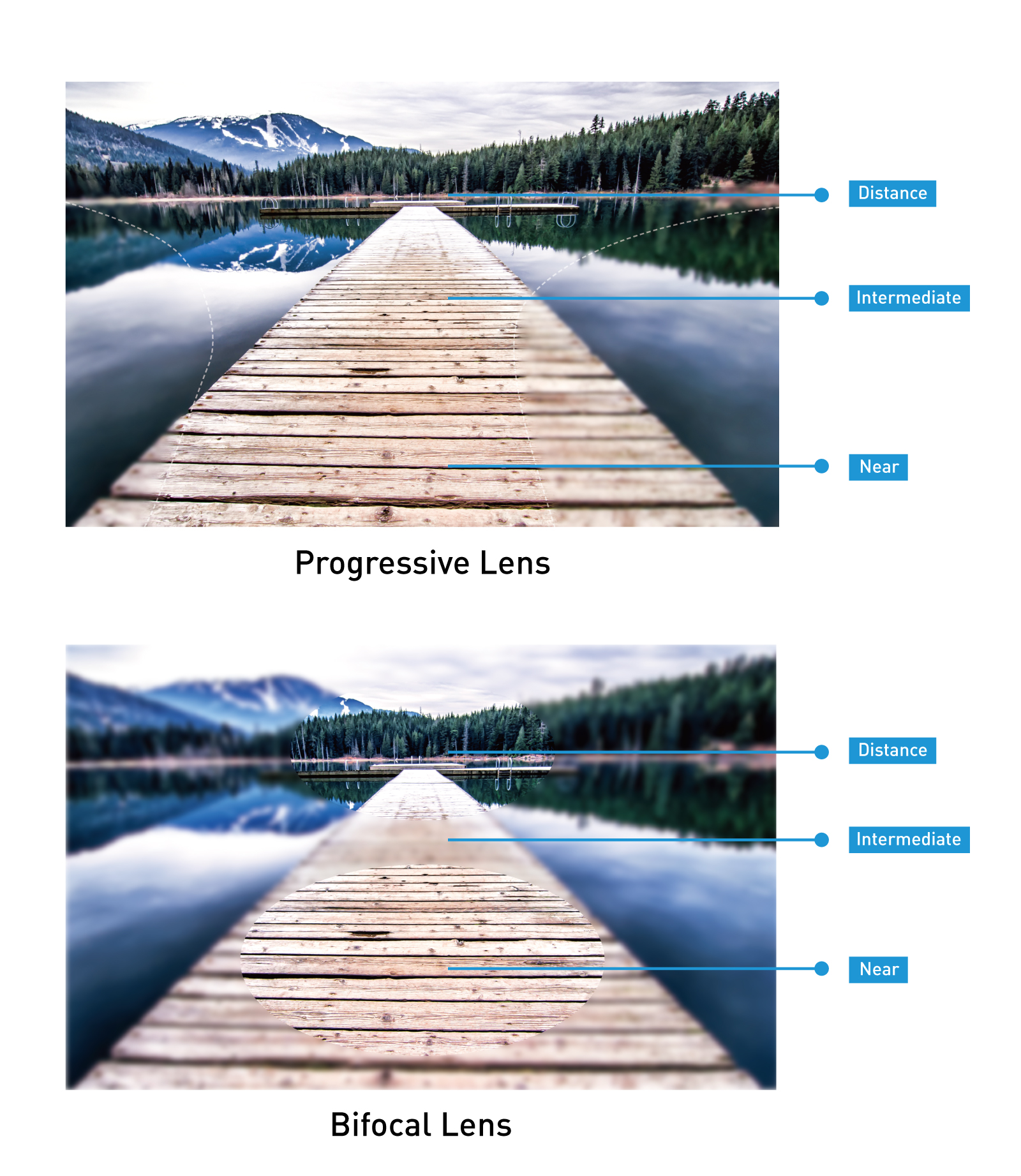
If you are presbyopia patients and spend a lot of time outdoors, it is a good idea to opt for photochromic progressive lenses. Because they not only shield your eyes from the harmful rays of the sun, but also provide you with a seamless and comfortable vision for different areas.
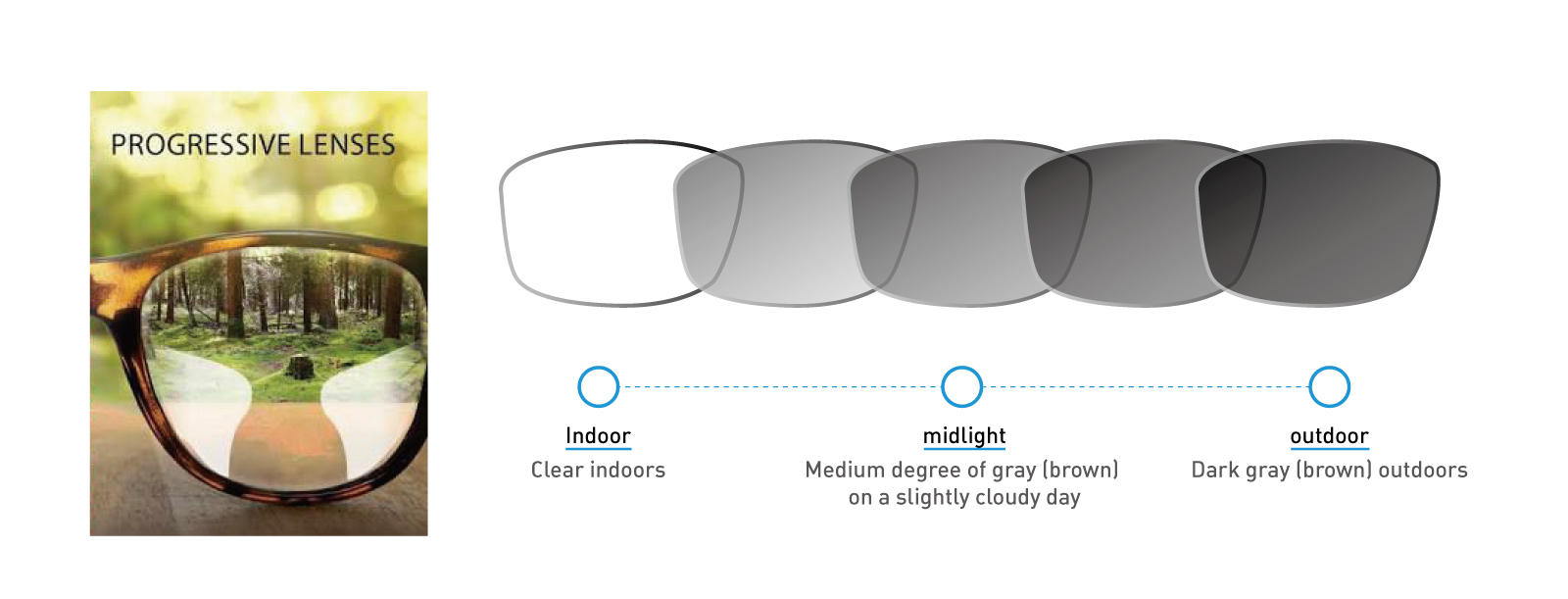
Who Uses Photochromic Progressive Lenses?
Being a presbyopia eyeglasses wearer on sunny days can be a conundrum. We should wear our photochromic glasses or vision correction glasses? The photochromic progressive lens will help you solve this big problem because this kind of lens has sunlight protection and prescription all in one pair!
Photochromic lenses are an extra feature that aren’t necessary for vision correction but are incredibly useful for day-to-day life.
Typically people over the age of 40 that have presbyopia (farsightedness) with vision blurring when they are doing close up work or reading small print. Progressive lenses can be used for children too, to prevent increasing myopia (nearsightedness).
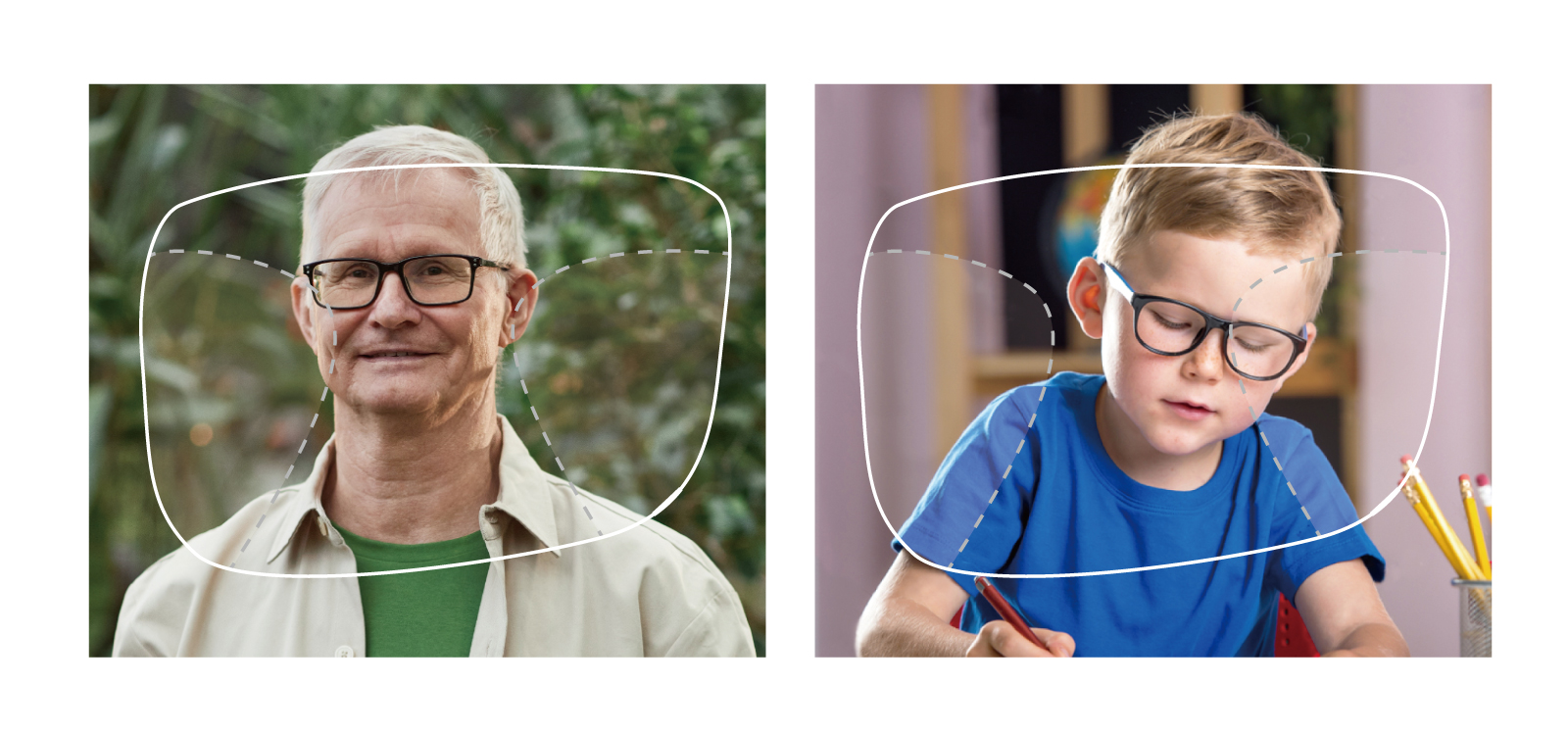
Why Should We Wear Photochromic Lenses?Benefits of Photochromic Progressive Lenses
Offer a younger looking appearance.
Provide 100% protection from the sun’s UVA and UVB rays.
Give you a comfortable and continuous field of vision with reduced distortion.
Provide three different viewing distances. You will no longer have to carry multiple pairs of glasses for multiple uses.
Eliminate the problem of image jump.
Reduce the chances of eyestrain.
